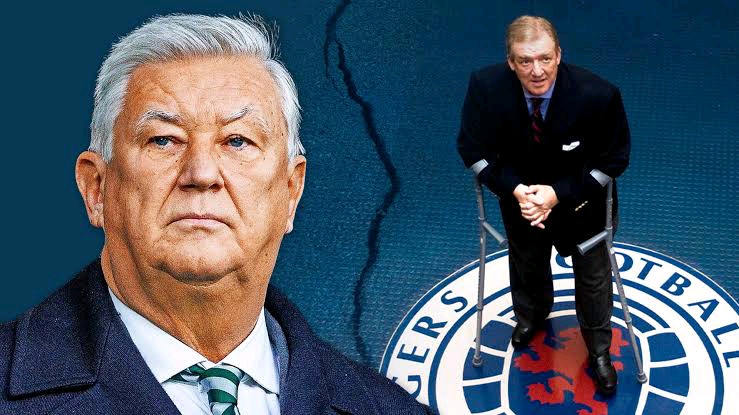Sir David Murray Criticises Celtic Chairman Peter Lawwell Over Rangers’ Financial Collapse
Former Rangers owner Sir David Murray has launched a scathing attack on Celtic chairman Peter Lawwell, accusing him of making inflammatory and misleading comments regarding the financial crisis that led to Rangers’ downfall in 2012.
Murray, who was at the helm of the Ibrox club for over two decades, took exception to Lawwell’s recent remarks that appeared to link Rangers’ financial collapse to a lack of sporting integrity. In a strongly worded response, Murray defended the club’s actions during that turbulent period and blamed external influences for misrepresenting the circumstances surrounding Rangers’ administration and subsequent liquidation.
The former chairman argued that Lawwell’s comments were not only unfair but also damaging, suggesting they were aimed at further stoking division between the two Glasgow giants. Murray maintained that Rangers were victims of both poor financial decisions and broader economic conditions at the time, and insisted the club never sought to gain an unfair advantage.
“Peter Lawwell’s remarks are both unnecessary and deeply disappointing,” Murray said in a public statement. “It’s time certain individuals stopped attempting to rewrite history for their own benefit.”
Murray went on to stress that Rangers had paid the price for their financial mismanagement and had worked their way back up the Scottish football pyramid with dignity and determination. He pointed out that the club had always played by the rules and that the punishment they received was among the harshest ever seen in British football.
Lawwell, who has long been a vocal figure in Scottish football, has frequently clashed with Rangers representatives over the years. His latest comments appear to have reignited tensions between the two clubs, with Murray now calling for a more respectful and honest dialogue between rivals, especially at boardroom level.
The episode has sparked strong reactions from both Rangers and Celtic supporters, reigniting debates about the events that led to Rangers’ demotion and the long-standing rivalry that dominates Scottish football.
While Murray no longer holds any official role at Rangers, his voice still carries significant weight among fans and former club officials. His public condemnation of Lawwell underscores the lingering sensitivity surrounding the 2012 financial collapse and the narrative that continues to divide opinion across Scotland’s football landscape.
As the war of words intensifies, calls for unity and professionalism at the top of Scottish football may become increasingly necessary.









